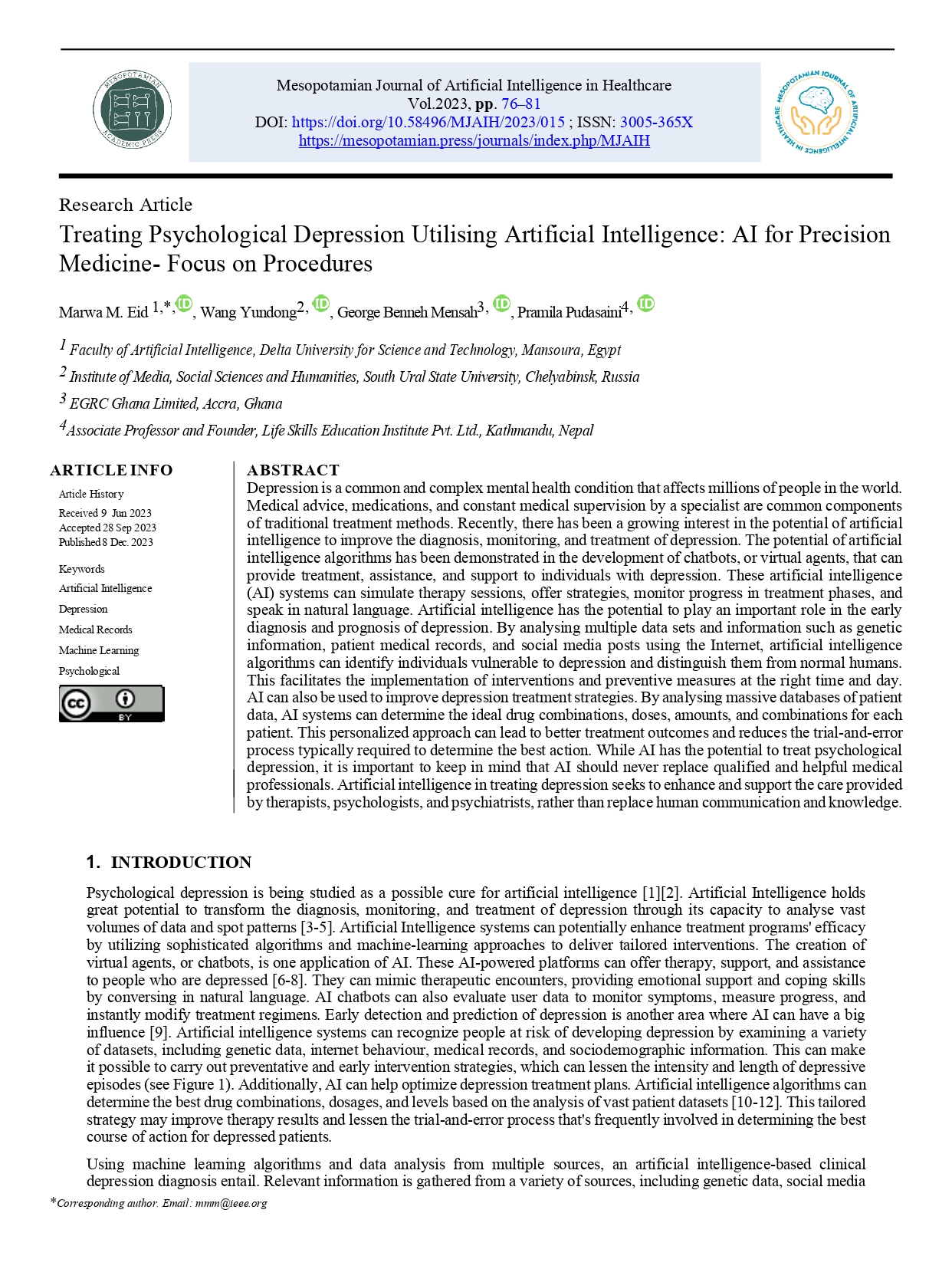Employing Artificial Intelligence Methods in Drug Development: A New Era in Medicine
Main Article Content
Abstract
Artificial intelligence (AI) plays a vital role in the development of pharmaceuticals. The whole drug development process, from target identification and lead optimization to clinical trials and post-marketing monitoring, has the potential to be revolutionized by AI. Data analysis is a crucial area where AI thrives. To find trends, correlations, and prospective targets for therapeutic intervention, AI systems can analyse enormous volumes of data, including electronic health records, molecular databases, academic literature, and clinical trial data. This saves time and resources by enabling researchers to decide which compounds or pathways to investigate. Lead optimization is another area where AI is essential since algorithms can screen and forecast the efficacy of new drug candidates. To improve efficacy, safety, and pharmacokinetics, the most promising leads are prioritized, and their attributes are optimized. By examining past data to pinpoint patient groupings that are most likely to respond to a certain medication, AI can also improve clinical trial design and patient selection. This advances success rates aids in the development of personalized medication and can support post-marketing surveillance by continuously scanning real-world data for adverse events or unexpected drug-drug interactions after a medicine has been licensed. This permits the quicker detection of potential safety issues and contributes to maintaining the continuous safety of licensed medications. However, some obstacles must be overcome to completely utilize AI in medication development. These include the requirement for high-quality data, assuring AI model transparency and interpretability, taking into account ethical issues, and regulatory frameworks for using AI in drug development.
Article Details
Issue
Section

This work is licensed under a Creative Commons Attribution 4.0 International License.
